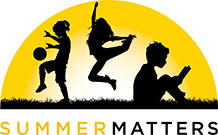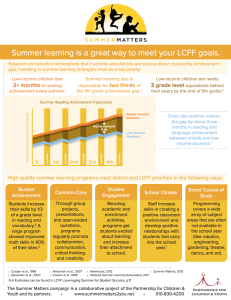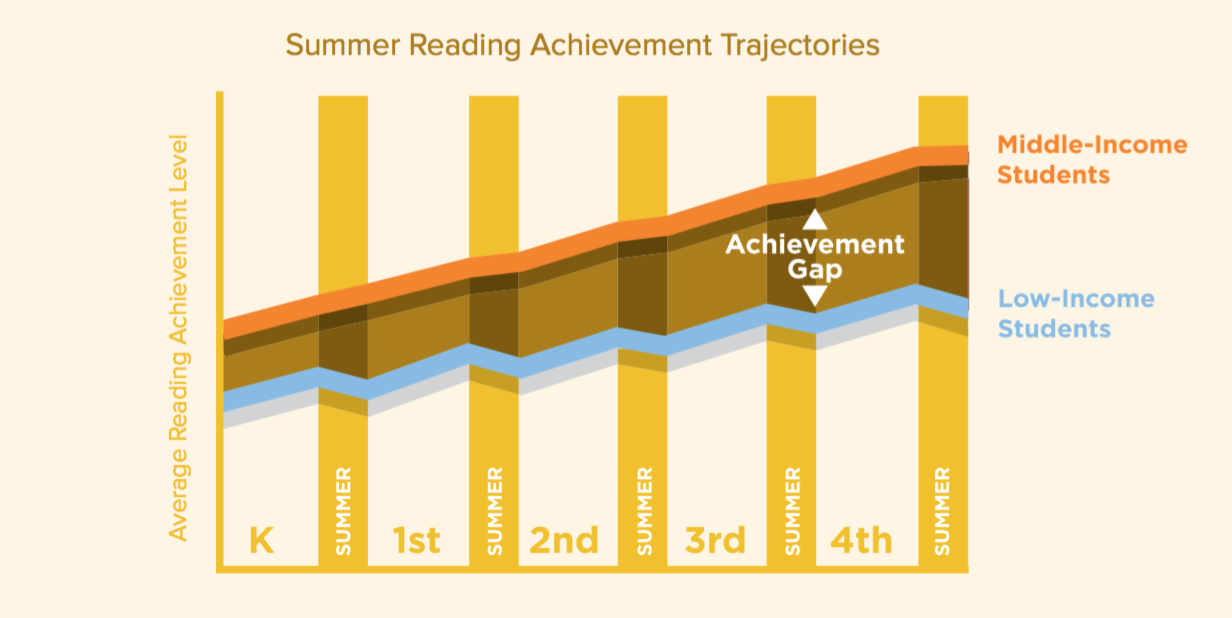Summer learning is a great way to meet your LCFF goals
A one page summary of the leading research on summer for districts considering supporting summer learning with LCFF
Research and practice demonstrate that if schools and districts are serious about closing the achievement gap, investing in summer learning strategies must be a top priority.
Low-income children lose 2+ months of reading achievement every summer.
Summer learning loss is responsible for two thirds of the 9th grade achievement gap.
Low-income children are nearly 3 grade level equivalents behind their peers by the end of 5th grade.
Every idle summer widens the gap by about three months in reading and language achievement between middle and low- income students.
High quality summer learning programs meet district and LCFF priorities in the following ways:
Student Achievement: Students increase their skills by 1/3 of a grade level in reading and vocabulary. A large program showed improved math skills in 90% of their sites.
Common Core: Through group projects, presentations, and open-ended questions, programs regularly promote collaboration, communication, critical thinking, and creativity.
Student Engagement: Blending academic and enrichment activities, programs get students excited about learning and increase their attachment to school.
School Climate: Staff increase skills in creating a positive classroom environment and develop positive relationships with students that carry into the school year.
Broad Course of Study: Programming covers a wide array of subject areas that are often not available in the school year (like robotics, engineering, gardening, theater, dance, and art).





